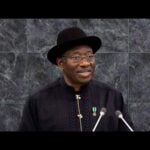US Secretary of State, Marco Rubio has said the US will “blow up” foreign criminal groups if necessary, even suggesting joint action with allied governments.
Speaking during a visit to Ecuador, Rubio said: “Now they’re gonna help us find these people and blow them up, if that’s what it takes.”
He added that two of Ecuador’s most notorious gangs, Los Lobos and Los Choneros, would soon be designated by the US as foreign terrorist organisations.
The warning comes days after US forces struck a boat in the Caribbean Sea, killing 11 alleged drug traffickers. While the White House said the operation disrupted narco-trafficking networks, it has yet to release the identities of those killed.
Rubio defended the aggressive stance when asked if it could extend to smugglers operating from allied nations such as Mexico or Ecuador.
He argued that “co-operative governments” would help Washington identify criminals, reducing the need for unilateral action.
“Now they’re gonna help us find these people and blow them up, if that’s what it takes,” Rubio said during a visit to Ecuador.
Asked whether smugglers coming from US allies, like Mexico and Ecuador, could face “unilateral execution” from US forces, Rubio said “co-operative governments” would help identify smugglers.
“The president has said he wants to wage war on these groups because they’ve been waging war on us for 30 years and no-one has responded.
“But there’s no need to do that in many cases with the friendly governments, because the friendly governments are going to help us,” he said.
The Ecuadorian and Mexican governments have not said they would assist with military strikes.
In the wake of Tuesday’s strike on the vessel in the southern Caribbean, President Donald Trump said the military operation had targeted members of the Venezuelan gang Tren de Aragua as they transported illegal narcotics towards the US.
Also on Thursday, Rubio announced Washington would issue $13.5m (£10m) in security aid and $6m in drone technology to help Ecuador crack down on drug trafficking.
Violence in Ecuador has soared in recent years as criminal gangs battle for control over lucrative cocaine routes.
According to government data, about 70% of the world’s cocaine now passes through Ecuador in transit from neighbouring producing countries, like Colombia and Peru, to markets in the US, Europe and Asia.
The designation of two groups was desired by the Ecuadorian President Daniel Noboa, who described his clampdown on foreign criminal groups as a “war.”
ALSO READ TOP STORIES FROM NIGERIAN TRIBUNE
WATCH TOP VIDEOS FROM NIGERIAN TRIBUNE TV
- Relationship Hangout: Public vs Private Proposals – Which Truly Wins in Love?
- “No” Is a Complete Sentence: Why You Should Stop Feeling Guilty
- Relationship Hangout: Friendship Talk 2025 – How to Be a Good Friend & Big Questions on Friendship
- Police Overpower Armed Robbers in Ibadan After Fierce Struggle






